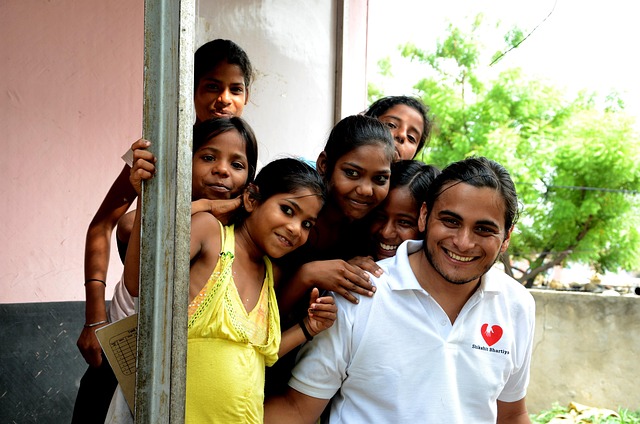Making a Difference: Volunteer Work at Orphanages
Orphanage volunteer projects give individuals a chance to support children in need through teaching, caregiving, and organizing activities. These programs offer meaningful cultural exchange while making a positive impact in communities both locally and abroad.

What Are Volunteer Projects at Orphanages?
Volunteer projects at orphanages encompass a wide range of activities designed to support children’s physical, emotional, and educational needs. These programs typically involve direct interaction with children through teaching, mentoring, and caregiving activities. Volunteers may assist with daily routines like meal preparation, homework help, and recreational activities such as sports, arts and crafts, or music programs.
Most orphanage volunteer programs operate in partnership with established childcare facilities, focusing on supplementing existing staff rather than replacing professional caregivers. Common responsibilities include English language instruction, basic computer skills training, organizing educational games, and providing one-on-one attention to help children develop social skills and confidence.
Finding Volunteer Opportunities in Orphanages in Your Area
Locating legitimate volunteer opportunities in orphanages requires careful research and consideration of various factors. Start by contacting local social services departments, as they often maintain lists of approved volunteer programs and can provide guidance on requirements and screening processes.
Faith-based organizations frequently coordinate orphanage volunteer programs both domestically and internationally. Many churches, synagogues, mosques, and other religious institutions partner with childcare facilities to organize regular volunteer activities. Community centers and nonprofit organizations also serve as valuable resources for finding reputable programs.
Online platforms like VolunteerMatch, JustServe, and United Way offer searchable databases of local volunteer opportunities. These platforms typically include detailed program descriptions, time commitments, and contact information for program coordinators. Social media groups and community bulletin boards can also provide leads on volunteer opportunities in your area.
How to Find Trusted Orphanage Volunteer Placements
Ensuring the legitimacy and safety of orphanage volunteer placements requires thorough vetting of organizations and programs. Begin by researching the organization’s history, mission statement, and transparency regarding their operations. Reputable organizations typically provide detailed information about their programs, staff qualifications, and child protection policies.
Check for proper licensing and accreditation through relevant governmental agencies. In the United States, legitimate childcare facilities must maintain state licensing and comply with strict regulations regarding volunteer screening and training. Request references from previous volunteers and ask specific questions about their experiences, training received, and ongoing support provided.
Look for organizations that require comprehensive background checks, including criminal history and child abuse clearances. Trustworthy programs also mandate orientation sessions, ongoing training, and clear guidelines for appropriate interactions with children. Be cautious of programs that request large fees upfront or make unrealistic promises about the volunteer experience.
Verify the organization’s financial transparency by reviewing annual reports, charity ratings on sites like Charity Navigator or GuideStar, and examining how donated funds are allocated. Legitimate organizations typically dedicate the majority of their resources directly to child services rather than administrative costs.
Understanding Costs Associated with Orphanage Volunteer Programs
Many orphanage volunteer programs involve various costs that potential volunteers should consider when planning their participation. Local volunteer opportunities typically have minimal direct costs, though some programs may require volunteers to complete training courses or background checks at their own expense.
International volunteer programs generally involve more substantial financial commitments. Program fees commonly range from $500 to $3,000 for short-term placements lasting one to four weeks, while longer-term commitments may cost $1,000 to $5,000 or more. These fees typically cover accommodation, meals, local transportation, and program coordination.
| Program Type | Duration | Typical Cost Range | Includes |
|---|---|---|---|
| Local Programs | Ongoing | $0-$200 | Background checks, training materials |
| Short-term International | 1-4 weeks | $500-$3,000 | Accommodation, meals, local transport |
| Long-term International | 2-6 months | $1,000-$5,000+ | Extended housing, comprehensive support |
| Specialized Programs | Variable | $800-$4,000 | Skills training, equipment, supervision |
Additional expenses may include international airfare, travel insurance, visa fees, vaccinations, and personal expenses. Some programs offer fundraising support or scholarship opportunities to help offset costs.
Prices, rates, or cost estimates mentioned in this article are based on the latest available information but may change over time. Independent research is advised before making financial decisions.
Preparing for Your Volunteer Experience
Successful orphanage volunteer experiences require adequate preparation and realistic expectations. Most programs provide orientation sessions covering cultural sensitivity, child development basics, and appropriate interaction guidelines. Take advantage of these training opportunities to better understand the children’s backgrounds and needs.
Consider learning basic phrases in the local language if volunteering internationally, as communication barriers can initially challenge meaningful connections with children. Research the cultural context of the community you’ll be serving to better understand social dynamics and customs that may influence your volunteer work.
Prepare emotionally for the realities of working with vulnerable children who may have experienced trauma, abandonment, or neglect. Many children in orphanage settings have complex emotional needs that require patience, consistency, and professional support beyond what volunteers can provide.
The impact of orphanage volunteer work extends far beyond the immediate assistance provided to children. Volunteers often report increased cultural awareness, enhanced empathy, and clearer perspectives on global social issues. These experiences frequently inspire long-term commitments to social service and advocacy, creating ripple effects that benefit communities for years to come. When approached thoughtfully and through reputable organizations, orphanage volunteer work creates meaningful connections between volunteers and children while contributing to sustainable improvements in child welfare systems worldwide.




